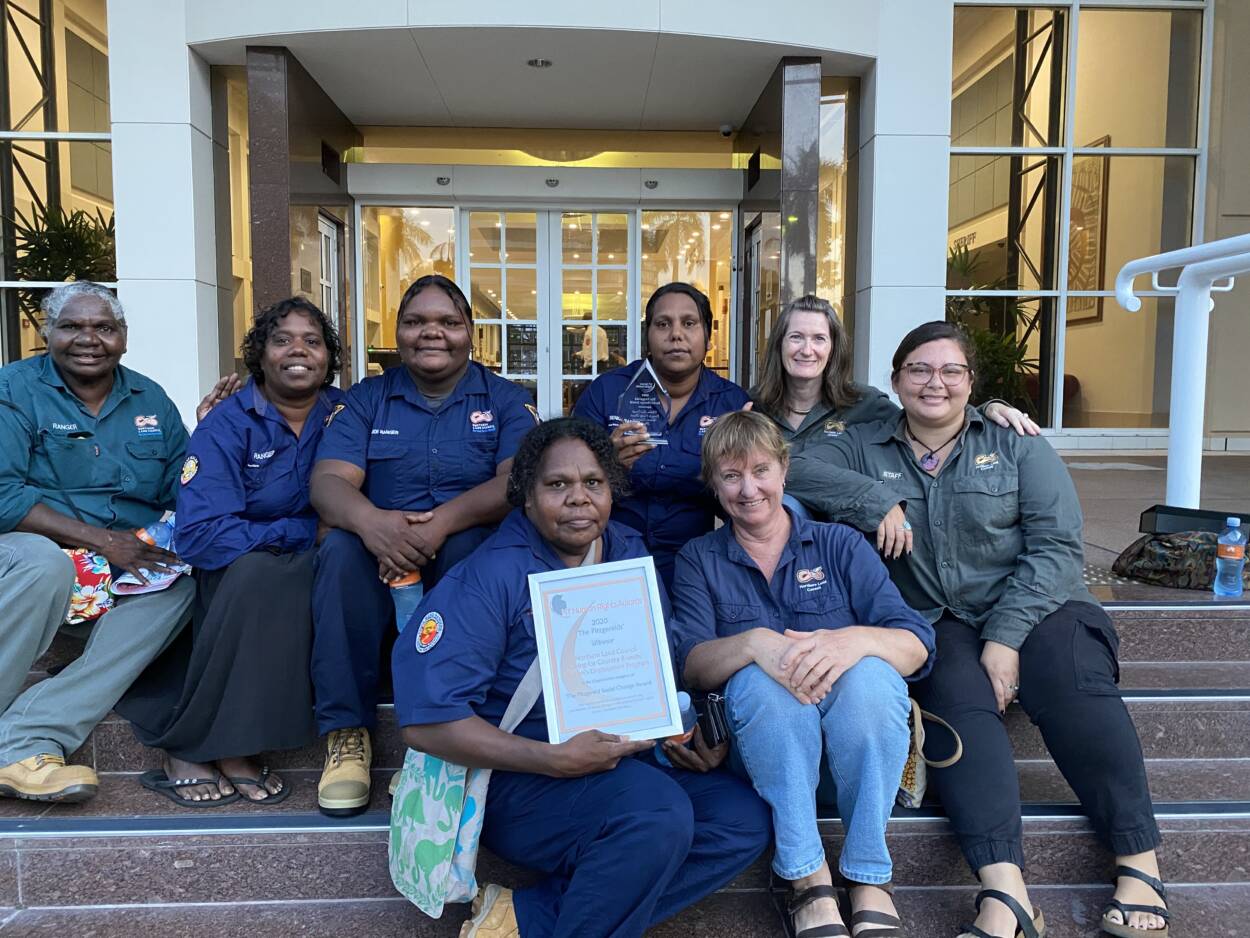The NLC’s women ranger employment program wins human rights award
Date: Dec 11, 2020
Publication Type: Media Releases
The Caring for Country Branch’s Women’s Employment Program has received an award at the 2020 NT Human Rights Awards.
Daphne Huddleston, Sheila White, Eslyn Wauchope, Jana Daniels, Penny Mules, Kylie Burn, Julie Roy and Fiona Peek.
The NLC congratulates the Caring for Country Branch’s Women’s Employment Program, which was presented with The Fitzgerald Social Change Award at the 2020 NT Human Rights Awards at the NT Supreme Court.
The award recognises an organisation or person who has contributed significantly to the promotion of social change for human rights and equal opportunity.
“This is exactly the type of change we need to celebrate,” said NLC CEO Marion Scrymgour.
“Our Caring for Country Branch has worked hard to create a work culture that attracts, retains and inspires Aboriginal women to become rangers. Through consultation with women rangers and community elders, the Caring for Country Branch were able to identify barriers to women’s participation and take action to overcome them.
“We congratulate all our women land and sea rangers and managers who have been a part of this cultural change and who continue to work towards achieving gender equity.”
The Caring for Country Branch adopted the Women’s Employment Strategy in 2018 and committed to increasing and supporting the participation of Aboriginal women in their ranger workforce.
Over the last three years, the implementation of the strategy has resulted in the employment of women in ranger groups increasing from 20 per cent to 47 per cent of the ranger workforce across NLC’s ranger groups.
Leadership development opportunities provided through the Women’s Employment Program have resulted in Aboriginal women rangers being promoted to leadership positions within seven ranger groups, including as senior rangers and assistant coordinators.
Joy Cardona, Chairwoman of the NLC’s Women’s Committee, which met this week at Katherine, described the women rangers as “trailblazers.”
“The courage and perseverance of all these women made it easier for others to follow in their footsteps and take on increased responsibilities as rangers and in supervisory roles.”
“And while it’s good news that more Aboriginal women are stepping into ranger positions, Indigenous ranger programs continue to face major funding challenges. We need a commitment to longer-term core funding to ensure the stability of the ranger program,” said Ms Cardona.
Malak Malak Assistant Ranger Coordinator Sheila White said women rangers are leaders in their communities and are inspiring young women to take up the role of caring for country and culture.
“Working as a ranger has not only benefitted me personally, I see how the young people and other women look up to us, and it makes us feel really proud,” Ms White said.
“Ranger groups are now a safe space for young women to enter, as they are able to work with other women, and are supported by staff who understand their needs. Many women’s lives have been changed by these opportunities.”


